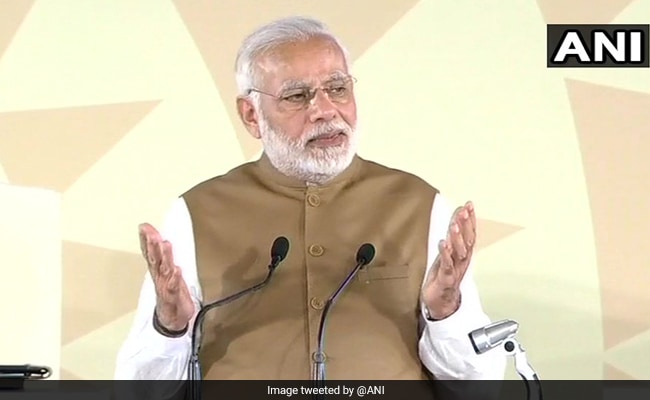Here are the LIVE Updates from the International Solar Alliance summit in New Delhi:
Prime Minister Narendra Modi inaugurated the International Solar Alliance summit in New Delhi today. During the inauguration, the prime minister addressed the delegates attending the event.
Here are the highlights of PM Modi's speech at the solar summit:
- This tiny plant of the International Solar Alliance could not be planted without the joint efforts and commitments of all of you present here. I am very grateful to France and to you all for making this possible. Of the 121 potential countries, 61 have already joined the International Solar Alliance. 32 have ratified the Framework Agreement.
- In India, the Vedas considered the Sun as the spirit of the world thousands of years ago. In India, the Sun is considered to be the nutrition needed to sustain life. Today, when we are looking for a way to tackle the challenge of Climate Change, then we have to look at the balanced and holistic view of India's ancient philosophy.
- In India, we have started the world's largest renewable energy expansion program. We will generate 175 GW of electricity from renewable sources of energy by 2022, of which 100 GW will be from solar power. We have already achieved 20 GW installed solar power.
- To promote the use of solar energy, the availability of technology and development, economic resources, reduction in prices, development of storage technology, mass manufacturing, and innovation require a complete eco system.
- What is going to be the way forward is something all we have to think. I have ten action points in my mind that I want to share with you all. First and foremost, we have to ensure that better and affordable solar technology is available to all and accessible to everyone. We need to increase the proportion of solar power in our energy mix.
- We have to encourage innovation so that solar solutions can be provided for various needs. We will have to provide concessional financing and low risk finance for solar projects.
- Regulatory aspects and standards have to be developed which should adopt solar solutions and speed up their development.
- Developing countries will have to develop consultancy support for bankable solar projects.
- We need to create a comprehensive network of centers of excellence.
- View our solar energy policy with the totality of development, in order to get more and more contributions from SDGs.
- We should make the International Solar Alliance secretariat strong and professional.
- If you want all of humanity to benefit, then I am confident that we all will come together and think like one family, so that we are able to bring unity and solidarity in our objectives and efforts.
- This is the way we will be able to achieve what ancient monks used to pray for when they said 'Tamaso ma Jyatirgamaya' which means "From darkness, lead me to light".

#WATCH Live: #InternationalSolarAlliance Summit underway at Delhi's Rashtrapati Bhavan. https://t.co/Cz58XNmzmI
- ANI (@ANI) March 11, 2018
PM @narendramodi and other world leaders in the 'family picture' at the Founding Conference of the International Solar Alliance in Delhi. pic.twitter.com/aAxOumXw6r
- PIB India (@PIB_India) March 11, 2018
Coming together for a cleaner and greener future...President @EmmanuelMacron, PM @narendramodi and other distinguished world leaders come together for the Founding Conference of the International Solar Alliance in Delhi. pic.twitter.com/gSse1NGQ7m
- PMO India (@PMOIndia) March 11, 2018
All set for the Founding Conference of the International Solar Alliance, where several world leaders are taking part. PM @narendramodi will be addressing the Conference shortly. pic.twitter.com/eBur8EVAnc
- PMO India (@PMOIndia) March 11, 2018
France and India are likely to sign a technology transfer agreement on solar energy at the International Solar Alliance summit. The ISA seeks to act as a platform for solar energy-rich nations to increase clean energy generation. It was launched in November 2015 at the Paris climate summit by PM Modi and former French President Francois Hollande. Till now, the International Solar Alliance has been in its founding stages and only launched a credit risk mitigation initiative.

